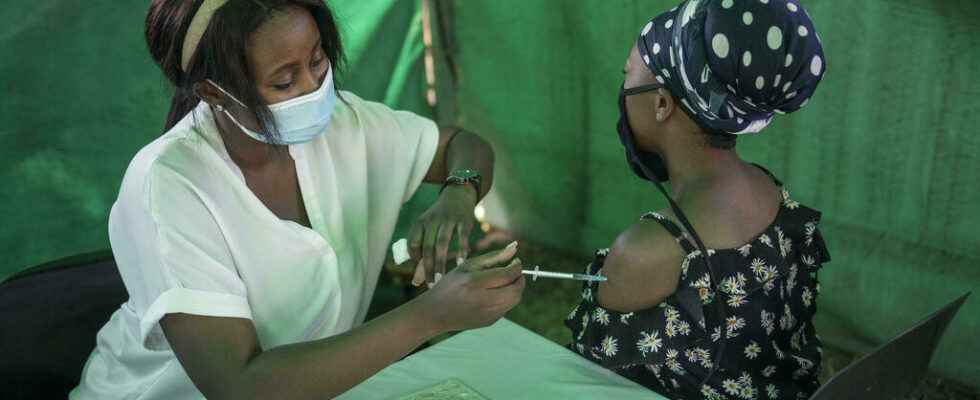As the African continent deploys its efforts to create vaccine production units for future pandemics (with a target of 60% of doses produced locally by 2040), bad news could soon reach them from South Africa. South: the local factory in Aspen, which has obtained the right to market Johnson & Johnson’s anti-Covid vaccine under its name, announces that it will have to cease production if orders remain at a standstill.
With our correspondent in Johannesburg, Claire Bargeles
Since last year, the South African company has already bottled nearly 180 million doses of Johnson & Johnson at its Port-Elizabeth plant. She wanted to go further, after signing an agreement to sell this vaccine on the continent, under her own brand, Aspenovax, but this project has come to a halt because no order has yet been received.
” If we still don’t receive orders for Aspenovax, it obviously won’t make sense for us to maintain this production line. We will have to use it to make things other than Covid vaccines “, explains Stavros Nicolaou, executive of Aspen.
After months of scarcity, the continent now finds itself overwhelmed by donations and struggling to administer the doses, for logistical reasons or lack of confidence of the populations.
However, this lack of orders calls into question the sustainability of other local production projects, as the director of the Africa Center for Disease Control and Prevention (CDC), John Nkengasong, has worried. ” We must pull together and support this African vaccine manufacturing company that is already doing its part. There’s no point in having all this conversation around vaccines if countries and pharmaceutical companies are producing doses, but they’re not being bought. »
The South African company is still giving itself “a few weeks » before abandoning production. Africa currently only has 16% of its population fully vaccinated.
► Read also: In South Africa, the awakening of the pharmaceutical industry
